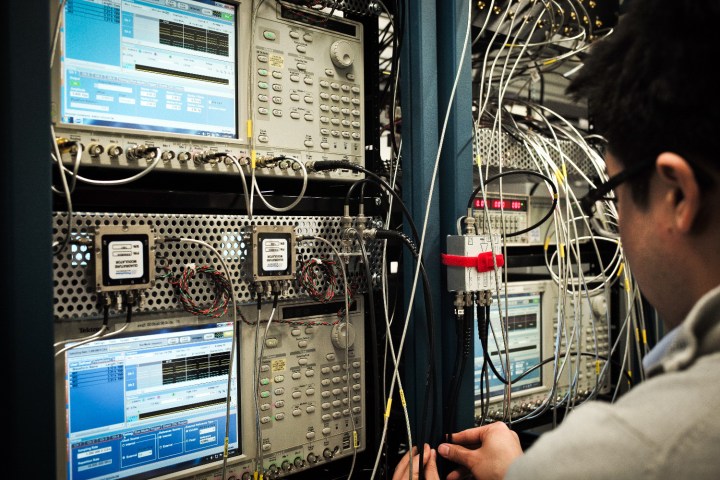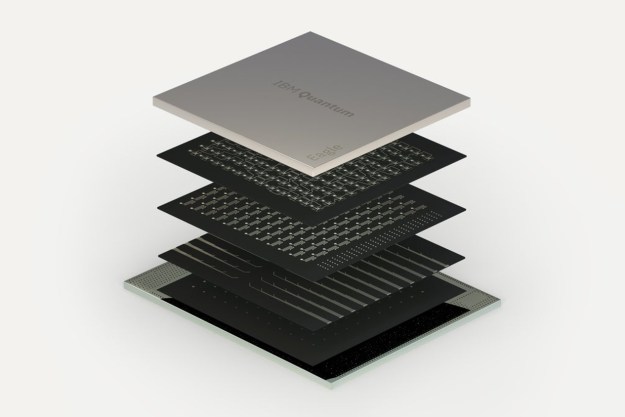
The IBM Quantum Experience gives anyone interested in this tech an opportunity to give it a test drive, according to a report from Wired. Students, researchers, and hobbyists will be able to log in to the service via their Web browser, and access the hardware IBM has put together in a research lab located in New York City.
Standard computing is based on the foundation of bits of information; small transistors that can represent the binary states of 1 and 0. Quantum computing uses some rather intimidating scientific concepts to support a system based around quantum bits, or qubits — which crucially can hold onto both a 1 and a 0 at the same time.
If one qubit can store both a 1 and a 0, two qubits can logically hold four values — 00, 01, 10, and 11 — and with enough qubits, you would have a computer capable of much more than a system that uses binary bits. At the moment, the computer at the center of the IBM Quantum Experience boasts five qubits, but the company hopes to expand to 50 or even 100.
Some will point to the Quantum Experience as a slick piece of marketing for IBM, but it’s difficult to deny its potential to further quantum computing. Allowing engaged minds to interact and tinker with the tech seems like the best possible way to tackle the issues that stand in the way of quantum computers replacing today’s systems.
For more information on the IBM Quantum Experience — as well as the invitation request form you’ll need to fill out in order to try it for yourself — head to its section on the IBM website.
Editors' Recommendations
- Should you turn your computer off at night? We asked an expert
- Samsung’s Odyssey Neo G9 launches in October — if you can stomach its insane price
- AI could replace around 7,800 jobs at IBM as part of a hiring pause
- Meta wants you to use its creepy Portal as a secondary monitor
- Scientists just achieved a breakthrough in quantum computing


